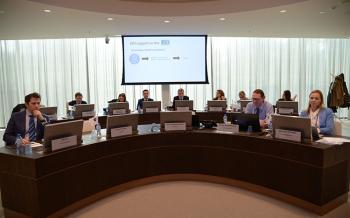
The European Judicial Network, created in 1998, is composed of Contact Points in the Member States, designated by each Member State among central authorities in charge of international judicial cooperation and the judicial authorities or other competent authorities with specific responsibilities in the field of international judicial cooperation.
The main role of the EJN Contact Points is to facilitate judicial cooperation in criminal matters between the EU Member States, particularly in actions to combat forms of serious crime. To this end, they assist with establishing direct contacts between competent authorities and by providing legal and practical information necessary to prepare an effective request for judicial cooperation or to improve judicial cooperation in general.
The EJN website is dedicated to actors in the field of international judicial cooperation in criminal matters. The website offers e-tools required for the functioning of the network and for the facilitation of the judicial cooperation. It also contains practical information, including on the cooperation with EU candidate and associated countries and with third countries and judicial networks. EJN Contact Points, prosecutors, judges and other legal professionals will find valuable information and tools on this site.
Among the EJN Contact Points, each Member State has designated a National Correspondent, who has a coordinating role. Each Member State also has a Tool Correspondent, who ensures that the information on the EJN website is provided and updated, including the electronic tools of the EJN.
The EJN has a Secretariat located at Eurojust in The Hague, as a separate unit responsible for the administration of the EJN. The EJN Secretariat ensures the functioning and continuity of the network.
The overview of the electronic tools for the judicial cooperation available on the EJN website is provided below together with a direct link of each tool at the EJN website.
